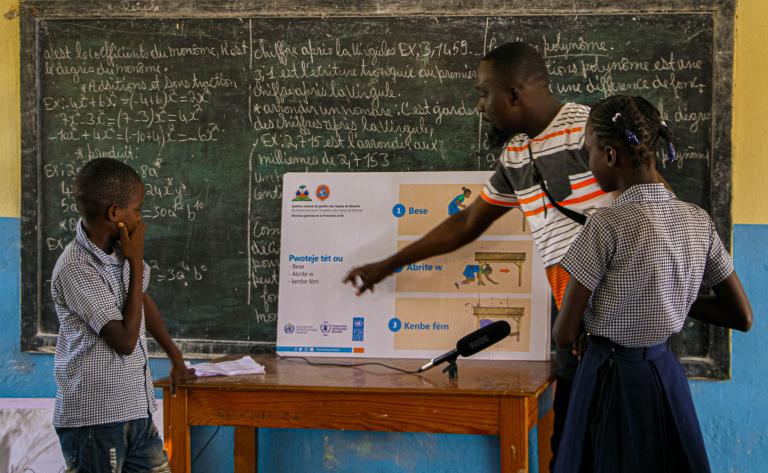Turning Warnings into Action
CREWS has 31 ongoing country and regional projects, 7 new projects in preparation and 19 projects in the pipeline.

The Global Climate Fund (GCF) process to scale-up funding for projects under the Climate Risk and Early Warning Systems (CREWS) approved a US$ 27 million project for Togo on 20 February. The Togo project is the first to be fast-tracked using the CREWS-GCF Simplified Approval Process, launched in 2023. CREWS has 31 ongoing country and regional projects, 7 new projects in preparation and 19 projects in the pipeline. The CREWS trust fund currently amounts to US$ 140 million for the ongoing and new projects that turn early warnings into action.
Since its establishment in 2015, CREWS has contributed to the development and approval of more than 55 national plans, strategies and laws on early warnings. These frameworks and systems ensure that early warnings are included and prioritized in the national plan, allowing the National Meteorological & Hydrological Services (NMHSs) to produce timely, understandable, and actionable alerts, particularly for those most at risk.
Further, through its capacity building and expert advisory support for authorities and people-at-risk, including children and women, CREWS has transformed warnings into concrete actions that save lives, while also improving the sustainability and effectiveness of early warning systems. Ensuring that impacted people know what to do and how to respond to early warnings is as crucial as implementing the early warning system itself.
CREWS has also supported the development of weather apps and websites in different countries to ensure people get timely alerts and disaster information. For example, the Tonga and Jamaica Weather Apps are now up and running, providing valuable weather updates. In Mali, the SOS SECURITE app has become a big success, with over one million downloads. This success was driven by a strong information campaign, using TV, radio, websites, and social media to raise awareness about the app. CREWS has also supported the hosting of an Open-source Content Management System (ClimWeb) in many West African countries, a digital tool that helps NMHSs to improve their weather forecasts and warnings dissemination, and to share important climate data across the region.
The Togo project will enhance the country’s preparedness for climate change and disaster risks by establishing a fit-for-purpose Climate Information and Early Warning System. In Togo, the World Bank-led CREWS project will introduce a Disaster Risk Reduction (DRR) program into school curricula by training over 250 educators to use a 158-page guide. This guide will help to raise awareness about disaster risks among thousands of students. The focus will be on teaching practical skills, like spotting flood risks and knowing safe evacuation routes – knowledge that will be crucial when flood risks arise.

To learn more, visit the CREWS website for more impact stories, including the challenges and lessons learnt from various projects.










